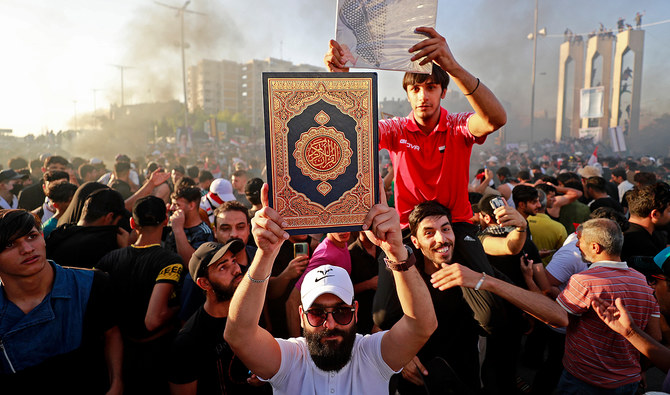RIYADH: The Organisation of Islamic Cooperation on Sunday said that measures need to be taken to avoid repeated acts of desecration to the Qur’an, Saudi state TV al-Ekhbariya reported.
The announcement was made during an emergency session over the repercussions of burning a copy of the Qur’an in Sweden on the first day of Eid Al-Adha, the Saudi Press Agency reported on Saturday.
"We must send constant reminders to the international community regarding the urgent application of international law, which clearly prohibits any advocacy of religious hatred," OIC Secretary-General Hissein Brahim Taha said.
The meeting, held at the OIC’s headquarters in Jeddah, was called following an invitation from Saudi Arabia — the chairman of the Islamic Summit in its current session and the OIC’s Executive Committee.
There has been widespread outrage and condemnation in the Muslim and Arab world since Salwan Momika, 37, a refugee from Iraq, desecrated the Qur’an and set fire to its pages in front of Stockholm’s largest mosque on Wednesday.
The “meeting is scheduled to discuss measures against these despicable acts to express a united position against the desecration of the Holy Qur’an,” the statement said.
The OIC warned of the seriousness of these acts, which undermine mutual respect and harmony among peoples and contradict international efforts to spread the values of tolerance, moderation and rejection of extremism.
The organization urged the governments of the countries concerned to take effective measures to prevent their recurrence, denouncing the repetition of these “despicable attacks” and all attempts to desecrate the sanctity of the Qur’an and other Islamic values, symbols and sanctities.
The OIC reaffirmed the obligation that all states have undertaken, under the UN Charter, to promote and encourage universal respect for and observance of human rights and fundamental freedoms for all, without distinction of race, sex, language or religion.
It noted the need to ensure that everyone exercises the right to freedom of expression with “responsibility and in accordance with relevant international human rights laws,” stressing the importance of promoting dialogue, understanding and cooperation between religions, cultures and civilizations for global peace and harmony.
























